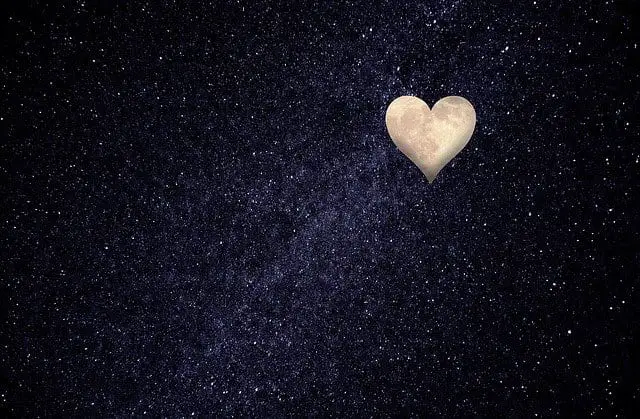
“When you do things from your soul, you feel a river moving in you, a joy.” ― Jalaluddin Rumi
Jalaluddin Rumi (1207-1273) is among the best lyrical poets and mystics from Persia. He was born in Balkh in Central Asia from where his family fled 18 years later fearing the invading Mongols. For a
brief period the family settled at a place known as Laranda; now Karaman in Central Anatolia in Turkey.
Rumi’s Background
Rumi married Jawhar Khatun while his family was at Laranda (karaman). Bahauddin Valad, his father, was a learned person as his name actually signifies. He founded the school of Islamic philosophy and theology at Konya in Turkey, where the family moved in 1228. Later Rumi donned the mantle of his father as a teacher and theologian after his father’s demise in 1231. His father, a mystic, and theologian was his first teacher. However, the first teacher to have given him the initiation experience was Sufi master Sayyid Burhanuddin Muhaqqiq of Termez, who was his father’s former student. It was in the company of his master that his love poetries flourished.
Meeting with Shams Al Tabriz
Rumi didn’t start out as the classical spiritual love poet as we know him today. He was a wealthy theologian, and scholar of Islam before he met the wandering dervish mystic Shams Al Tabriz. Shams was looking for someone “whose soul” was as deep, as pure, and as wide as his own. When Rumi met Shams, he discovered his own soul, his “Beloved”, his friend in him, while Shams found his perfect disciple in Rumi. No one, including Rumi’s friends, family, and students could decipher the depth of relationship between the two. Much of the Spiritual love quotes by Rumi is attributed to this flourishing of soul relationship.
…This madness rises/ out of love, and weeping./ We must not be afraid of/ what anyone might
say./Be source, not result. (-from Illustrated Rumi, p. 65).
Rumi’s expressions of Spiritual Love Quotes
Here are some more spiritual quotes by Rumi:
“The minute I
heard my first love story,
I started looking for you, not knowing
how blind that was.
Lovers don’t finally meet somewhere.
They’re in each other all along.”
Rumi’s eloquent expression in thousands of poems can be found in any stanza or part of the poem you encounter.
Last night the moon came dropping
her clothes in the street.
(from Illustrated Rumi, p. 62)
“I said to the night,
“If you are in love with the moon,
it is because you never stay for long.”
The night turned to me and said,
“It is not my fault. I never see the Sun,
how can I know that love is endless?”
Most often in the spiritual love quotes by Rumi, we encounter the metaphor of drunkenness indicative of the intoxicated state of love. His spiritual relationship with Shams could be the source and genesis of this form of mental and spiritual state we find reflected in his poems. While composing his poems, whose parts we are familiar with in spiritual love quotes, Rumi used to whirl in a circle to the music of gushing water or drum beats. The goal of this form of spiritual dance was to get closer to the divine source or to attain mystical union.
Rumi used to be attended by a scribe who faithfully recorded his spiritual love quotes, while Rumi continued dancing even as the spiritual love couplets issued forth his heart. At the time, this whirling dervish practice was not quite common. His traditional contemporaries did not approve of it. Nevertheless, the power of his love quotes held everyone speechless or surprised.

Rumi sang his love poems using the common metaphors of everyday life but eventually everything he said or spoke in his poetry expressed the love of God. His poems are mystical. These poems artfully articulate the expression of the state of divine love or divine intoxication that readers can instantly grasp as profound expressions of love with its connection to divine. His love poems make an instant appeal because Rumi uses the simplest of metaphors and employs an economy of words. Thus his experiences are the expressions we instantly connect to. It becomes a collective experience that all of us share in common. For instance, he expresses his search of meaning from the perspective of ‘self,’ an observer.
My soul is from elsewhere, I’m sure of that and I intend to end up there…
Meanwhile I’m like a bird from another
continent, sitting in this aviary.
The day is coming when I fly off,
but who is it now in my ear,
who hears my voice?
Who says words with my mouth?
Who looks out with my eyes?
What is the soul?
I cannot stop asking.
If I could taste one sip
of an answer, I could break out
of this prison for drunks.
-from Illustrated Rumi, p.14
Our Experience of Rumi’s Spiritual Love Quotes
Once Rumi was introduced to the world of mysticism, he grasped the quintessential form of love and became one with the universal love, compassionate and unbounded in essence. The brilliance and purity of his spiritual love poems exalt and uplift the readers to this day. He is probably the most read poet of all time and remembered as the most famous Sufi poet.
Rumi’s words address our hearts and spirits, not our minds. When we read his spiritual love quotes, we instantly feel the essence of love. No other poet is probably as powerful and as direct in touching our souls as Rumi.
Rumi’s love poems have the quality of transformative power. It nurtures and nourishes our souls without mediation or instantly and immediately. We experience them rather than understand them. We enter into a mystical zone, an altogether different realm that drives us to a longing for universal belonging and spiritual connection.
Any attempt to explain spiritual love quotes would be futile because the mediation of explanation would kill its essence. His poems are best experienced metaphorically as the scent of flowers and the beauty of nature to each of the experiencing subjects. As any effort to explain the beauty of nature and the scent of flowers would be useless without the actual experience, Rumi’s love quotes would be.
Notice the immediacy and power of these spiritual love quotes by Rumi, for instance.
“If I love myself
I love you.
If I love you
I love myself.”
Here is another spiritual love quote by Rumi.
“The minute I heard my first love story,
I started looking for you, not knowing
how blind that was.
Lovers don’t finally meet somewhere.
They’re in each other all along.”
It is easy note the exquisite quality of profound experience in the above spiritual love quotes. There is an experience of inner peace and joy for us as readers of Rumi’s spiritual love quotes. We are instantly transported to a realm beyond the material existence. They get us closer to our core whose essence is love and joy. We experience the feelings of “buoyancy”, and “shimmering aliveness” in the words of C.S. Lewis.
The profound and exacted experience evoked by the inner power and beauty of Rumi’s spiritual love poems is an altogether different experience from short-lived fun or happiness of mundane nature. The feeling of ecstasy presented by the spiritual love quotes of Rumi is of the nature of transcendence. It is something far bigger than the emotions we are used to experiencing in our mundane day-to-day life. It is timeless and beyond space and its impact can be lasting.
Feel the impact of one of Rumi’s poems below, for instance.
“This is how
I would die
into the love I have for you:
As pieces of cloud
dissolve in sunlight.”
It is clearly noticed that Rumi’s spiritual love quotes takes us into a timeless sphere and brings us in touch with our souls. It connects us to an exalted and uplifted sphere of divine by opening an altogether new dimension in us.
Conclusion
Jalaluddin Rumi (1207-1273), the spiritual love poet of 13th century, has continued to inspire despondent and alienated children of humanity for centuries. The source of his
charisma is numerous spiritual poems that he composed in a state of mystic intoxication. In fact, they may have come from a higher source while he was just a medium of their expression.
It is not his wealthy background or his theological scholarship that we remember of him today. We remember him for a vast literary work of timeless value and pristine heritage that he bequeathed to us. It is for the entire mankind to nurture, and share.
You may realize the value of Rumi when you turn to him when you feel disconnected from your essence. Rumi is valuable when you feel out of love, or when you are overcome with anxiety. In those circumstances, Rumi will inspire you and help you connect with your core. You would be able to build a bridge between yourself and the higher self. Every time you read Rumi, you will achieve the transcendence that comes with submergence in the universal self.
